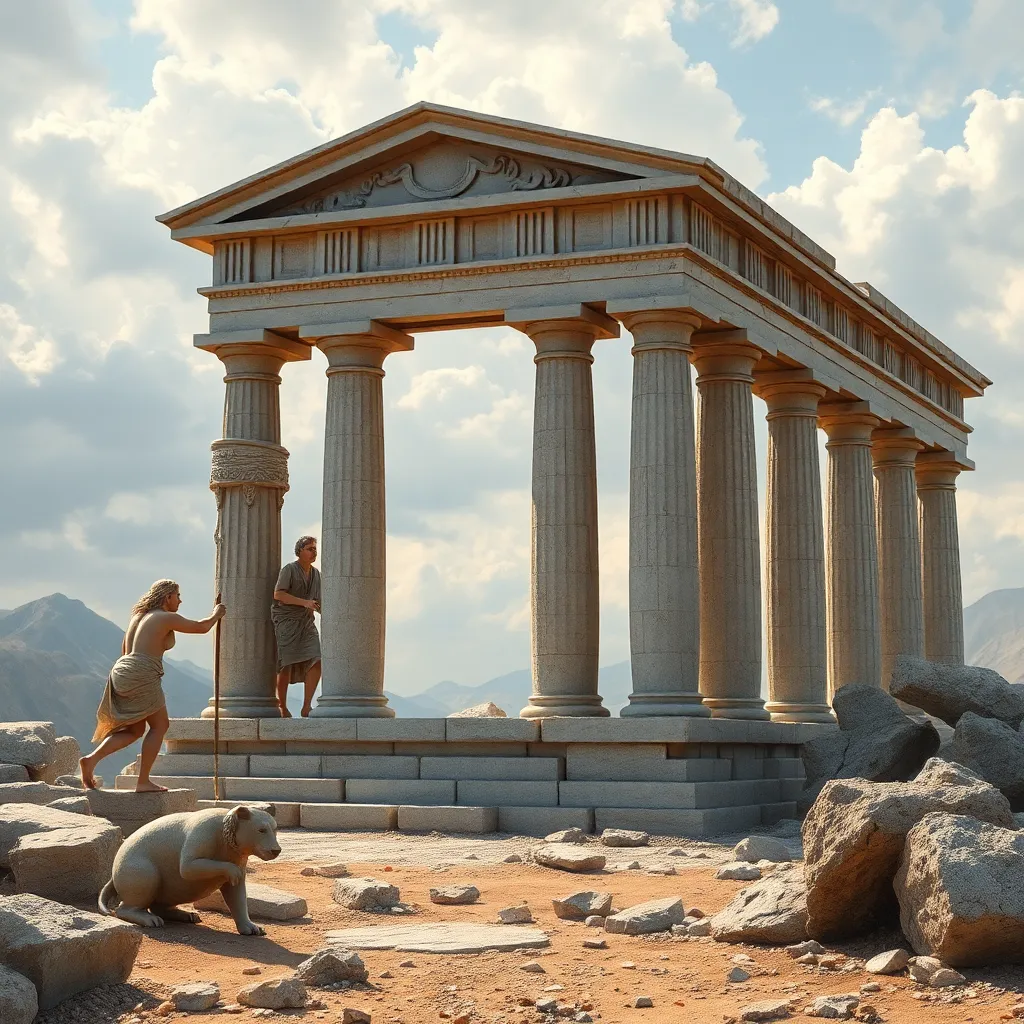The Odyssey: An Analysis of its Major Conflicts
I. Introduction
“The Odyssey,” attributed to the ancient Greek poet Homer, is one of the most significant works of literature in human history. This epic poem chronicles the adventures of Odysseus as he strives to return home to Ithaca after the Trojan War. The narrative is rich with themes of heroism, loyalty, and the struggle against adversity, making it a cornerstone of Western literary tradition.
Conflict plays a crucial role in “The Odyssey,” driving the plot and shaping the protagonist’s character. The various conflicts encountered by Odysseus not only highlight his heroic qualities but also reveal his vulnerabilities, making his journey relatable and profound.
This article aims to analyze the major conflicts in “The Odyssey,” exploring their significance and how they contribute to the overall narrative and themes of the epic.
II. The Internal Conflict of Odysseus
Odysseus embodies the archetypal hero, yet he grapples with profound internal conflicts throughout his journey. His struggle between his heroic identity and his human vulnerabilities is a recurring theme.
One major aspect of this internal conflict is Odysseus’ longing for home, which often clashes with his responsibilities as a leader. While he yearns to return to his wife, Penelope, and his son, Telemachus, he also feels the weight of his duties to his crew and the challenges they face.
The impact of Odysseus’ internal conflict is evident in his decision-making. His heroic qualities often lead him to take risks that endanger his crew, illustrating the tension between personal desire and the responsibilities of leadership.
III. The Conflict with the Gods
Divine intervention is a pivotal element of “The Odyssey.” The gods play an integral role in shaping Odysseus’ journey, with both assistance and opposition influencing his fate.
- Athena: The goddess of wisdom, Athena serves as Odysseus’ protector and guide, helping him navigate various challenges.
- Poseidon: In contrast, Poseidon, the god of the sea, harbors a grudge against Odysseus for blinding his son, the Cyclops Polyphemus, and thus actively works to hinder his journey.
This conflict between divine influences raises questions about fate versus free will. While Odysseus possesses agency, the gods’ whims often dictate the course of his journey, illustrating the complexities of human existence in a world governed by divine powers.
IV. The Struggle Against Monsters and Beasts
Odysseus encounters several mythical creatures that symbolize chaos and temptation, each presenting unique challenges that test his courage and ingenuity.
- Cyclops: Odysseus’ encounter with Polyphemus demonstrates his cleverness but also the dangers of pride.
- Sirens: The enchanting voices of the Sirens tempt sailors to their doom, symbolizing the allure of distraction and the importance of self-control.
- Scylla and Charybdis: These monsters epitomize the inevitability of difficult choices, forcing Odysseus to navigate perilous waters with no clear path to safety.
Through these confrontations, Odysseus learns valuable lessons about resilience, the importance of teamwork, and the necessity of making sacrifices for the greater good.
V. The Conflict with Time and Memory
The theme of nostalgia permeates Odysseus’ journey, highlighting the impact of time on his quest to return home. As he travels, he faces numerous distractions that test his memory and resolve.
Odysseus’ longing for Ithaca is juxtaposed with the many temptations he encounters, such as the Lotus-Eaters, who offer forgetfulness and complacency. This conflict illustrates the struggle to maintain one’s identity and purpose in the face of overwhelming challenges.
Additionally, the duration of Odysseus’ journey, spanning over a decade, emphasizes the psychological toll of time on his psyche, raising questions about the nature of memory and the importance of home.
VI. The External Conflict with Suitors
Upon Odysseus’ return to Ithaca, he confronts the external conflict presented by the suitors who have invaded his home during his absence. These men vie for Penelope’s hand, undermining Odysseus’ authority and legacy.
The moral and ethical implications of reclaiming his rightful place are significant. Odysseus must navigate the complexities of justice and revenge, balancing his desire for retribution with the need to restore order in his household.
The resolution of this conflict, marked by Odysseus’ decisive action against the suitors, restores his position as king and husband, reaffirming the themes of loyalty and rightful leadership in the narrative.
VII. The Gender Conflict: Penelope vs. the Suitors
Penelope emerges as a central figure in “The Odyssey,” embodying loyalty and cleverness in the face of adversity. Her role in the narrative highlights the complexities of gender dynamics in ancient Greek society.
As the suitors encroach upon her home, Penelope employs various strategies to delay her decision, showcasing her intelligence and strength. This conflict between Penelope and the suitors illustrates the societal expectations placed on women and their resistance against subjugation.
Penelope stands as a symbol of resilience, reinforcing the theme of loyalty and the importance of maintaining one’s integrity amid chaos.
VIII. Conclusion
Throughout “The Odyssey,” the major conflicts analyzed—internal struggles, divine influences, encounters with mythical beasts, the passage of time, and external challenges—serve to enrich the narrative and deepen our understanding of Odysseus as a character.
These conflicts contribute significantly to the overarching themes of resilience and perseverance, illustrating the human capacity to navigate adversity through strength and determination.
In conclusion, “The Odyssey” remains a timeless exploration of conflict in the human experience, offering valuable insights into the struggles we face and the enduring quest for identity, belonging, and home.




